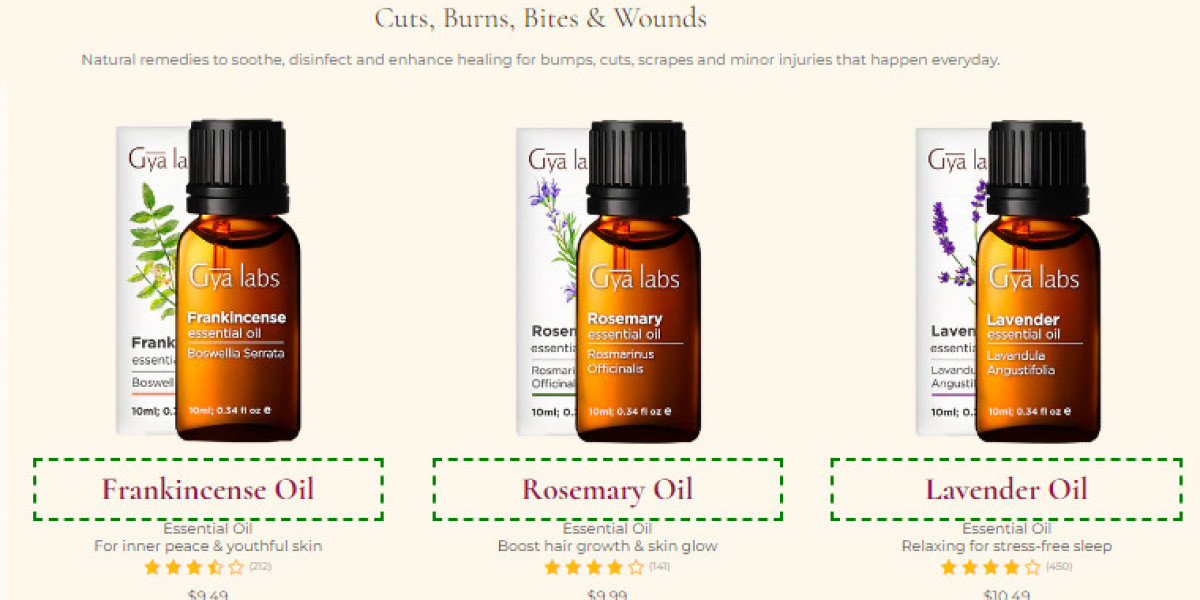Wounds are breaks in the skin or openings that expose the underlying tissue. They can be caused by cuts, scrapes, burns, or other injuries. While our bodies are designed to heal wounds naturally, the healing process can sometimes be slow and painful. Using essential oils is one way to help speed up wound healing, reduce pain and inflammation, prevent infection, and minimize scarring. In this guide, well explore some of the best essential oils for wound care and how to use them safely and effectively.
Tea Tree Oil
Tea tree oil is one of the most popular essential oils for wounds thanks to its powerful antiseptic, antibacterial, antiviral, and anti-fungal properties. It can help prevent infection in wounds by killing bacteria and microbes. Tea tree oil also reduces inflammation and can help relieve pain and itching associated with wounds. To use it, dilute 2-3 drops of tea tree essential oil in 1 tablespoon of carrier oil like coconut oil and apply it directly to the wound 2-3 times a day. Be sure to do a patch test first, as some people may be sensitive to tea tree oil.
Lavender Oil
Lavender essential oil is another excellent choice for wound healing. It contains antioxidant, antimicrobial, and anti-inflammatory compounds that accelerate wound closure, protect wounds from infections, and reduce scar formation. Lavender oil also has a soothing, calming scent that can help relieve wound pain. For wounds, mix 3-4 drops of lavender oil in 1 teaspoon of carrier oil and gently dab on the affected area several times a day after cleaning.
Frankincense Oil
Frankincense oil has powerful anti-inflammatory, antimicrobial, and wound healing properties. It helps tone and lift skin, reduces scarring, promotes new cell growth, and prevents bacteria from infecting wounds. Mix 2-3 drops of frankincense essential oil with an equal amount of carrier oil like coconut or jojoba oil and apply to wounds 2-3 times daily. Be careful not to apply frankincense oil to fresh burns or other severely damaged skin.
Geranium Oil
Geranium essential oil can help stop bleeding, facilitate blood clotting, and rebuild new tissue in wounds. It also minimizes scarring and protects wounds from developing infections due to its antimicrobial activity. For wound healing benefits, mix 4-5 drops of geranium oil with 1 teaspoon of carrier oil and use it to gently massage around the affected area 2-3 times a day. Avoid direct contact with fresh wounds.
Helichrysum Oil
Thanks to its anti-inflammatory, antiseptic, and tissue regenerating abilities, helichrysum essential oil is excellent for healing wounds, preventing scarring, and fading existing scar tissue. It also promotes circulation and stimulates new cell growth. To use, combine 2-3 drops of helichrysum oil with a carrier oil like coconut oil and apply it on the wound 2 times a day after cleaning.
Patchouli Oil
Patchouli oil is known for its ability to stimulate tissue regeneration and cell growth, making it ideal for healing wounds and minimizing scarring. It also has antiseptic and anti-inflammatory properties that can prevent infection. For wounds, mix 2 drops of patchouli oil in with 1 teaspoon of carrier oil and dab it on the affected area 2-3 times daily.
Myrrh Oil
Myrrh oil is traditionally used to cleanse and disinfect wounds. It contains anti-inflammatory compounds that reduce swelling and pain, and antimicrobial agents that prevent bacterial overgrowth. For wound treatment, add 2-3 drops of myrrh oil to 1 tablespoon of jojoba or coconut oil and gently rub it around the wound once a day after cleaning. Myrrh oil blends particularly well with frankincense oil too.
Lemon Oil
Lemon oil has refreshing, antimicrobial, and wound healing abilities. When applied topically to wounds, lemon oil can act as an antiseptic while also stimulating new tissue growth and blood flow. Mix 2 drops of lemon essential oil with a carrier oil and dab it onto wounds with a cotton ball once or twice a day. Avoid sun exposure after applying lemon oil.
When using essential oils for wound healing, its important to dilute them properly with a carrier oil and do a patch test first. Clean wounds thoroughly before applying oils. Monitor for any irritation and discontinue use if rashes or reactions develop. Seek medical treatment for serious wounds like burns, animal bites, large gashes, or wounds showing signs of infection. With proper care, essential oils can be a valuable addition to your wound healing regimen.








